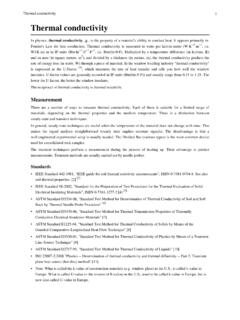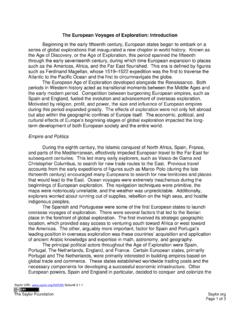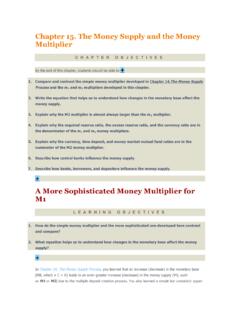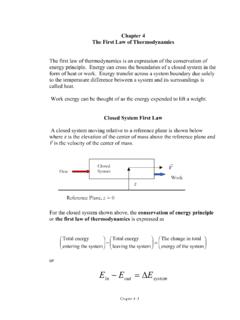Transcription of THE CANTERBURY TALES of - Saylor Academy
1 THE CANTERBURY TALES . And other Poems of GEOFFREY CHAUCER. Edited for Popular Perusal by D. Laing Purves CONTENTS. PREFACE. LIFE OF CHAUCER. THE CANTERBURY TALES . The General Prologue The Knight's Tale The Miller's tale The Reeve's Tale The Cook's Tale The Man of Law's Tale The Wife of Bath's Tale The Friar's Tale The Sompnour's Tale The Clerk's Tale The Merchant's Tale The Squire's Tale The Franklin's Tale The Doctor's Tale The Pardoner's Tale The Shipman's Tale The Prioress's Tale Chaucer's Tale of Sir Thopas Chaucer's Tale of Meliboeus The Monk's Tale The Nun's Priest's Tale The Second Nun's Tale The Canon's Yeoman's Tale The Manciple's Tale The Parson's Tale Preces de Chauceres THE COURT OF LOVE <1>.
2 THE CUCKOO AND THE NIGHTINGALE <1>. THE ASSEMBLY OF FOWLS. THE FLOWER AND THE LEAF <1>. THE HOUSE OF FAME. TROILUS AND CRESSIDA. CHAUCER'S DREAM <1>. THE PROLOGUE TO THE LEGEND OF GOOD WOMEN. CHAUCER'S MISCELLANEOUS POEMS. PREFACE. THE object of this volume is to place before the general reader our two early poetic masterpieces The CANTERBURY TALES and The Faerie Queen; to do so in a way that will render their "popular perusal" easy in a time of little leisure and unbounded temptations to intellectual languor; and, on the same conditions, to present a liberal and fairly representative selection from the less important and familiar poems of Chaucer and Spenser.
3 There is, it may be said at the outset, peculiar advantage and propriety in placing the two poets side by side in the manner now attempted for the first time. Although two centuries divide them, yet Spenser is the direct and really the immediate successor to the poetical inheritance of Chaucer. Those two hundred years, eventful as they were, produced no poet at all worthy to take up the mantle that fell from Chaucer's shoulders; and Spenser does not need his affected archaisms, nor his frequent and reverent appeals to "Dan Geffrey," to vindicate for himself a place very close to his great predecessor in the literary history of England. If Chaucer is the "Well of English undefiled," Spenser is the broad and stately river that yet holds the tenure of its very life from the fountain far away in other and ruder scenes.
4 The CANTERBURY TALES , so far as they are in verse, have been printed without any abridgement or designed change in the sense. But the two TALES in prose Chaucer's Tale of Meliboeus, and the Parson's long sermon on Penitence have been contracted, so as to exclude thirty pages of unattractive prose, and to admit the same amount of interesting and characteristic poetry. The gaps thus made in the prose TALES , however, are supplied by careful outlines of the omitted matter, so that the reader need be at no loss to comprehend the whole scope and sequence of the original. With The Faerie Queen a bolder course has been pursued. The great obstacle to the popularity of Spencer's splendid work has lain less in its language than in its length.
5 If we add together the three great poems of antiquity the twenty-four books of the Iliad, the twenty-four books of the Odyssey, and the twelve books of the Aeneid . we get at the dimensions of only one-half of The Faerie Queen. The six books, and the fragment of a seventh, which alone exist of the author's contemplated twelve, number about 35,000 verses; the sixty books of Homer and Virgil number no more than 37,000. The mere bulk of the poem, then, has opposed a formidable barrier to its popularity; to say nothing of the distracting effect produced by the numberless episodes, the tedious narrations, and the constant repetitions, which have largely swelled that bulk.
6 In this volume the poem is compressed into two-thirds of its original space, through the expedient of representing the less interesting and more mechanical passages by a condensed prose outline , in which it has been sought as far as possible to preserve the very words of the poet. While deprecating a too critical judgement on the bare and constrained precis standing in such trying juxtaposition, it is hoped that the labour bestowed in saving the reader the trouble of wading through much that is not essential for the enjoyment of Spencer's marvellous allegory, will not be unappreciated. As regards the manner in which the text of the two great works, especially of The CANTERBURY TALES , is presented, the Editor is aware that some whose judgement is weighty will differ from him.
7 This volume has been prepared "for popular perusal;". and its very raison d'etre would have failed, if the ancient orthography had been retained. It has often been affirmed by editors of Chaucer in the old forms of the language, that a little trouble at first would render the antiquated spelling and obsolete inflections a continual source, not of difficulty, but of actual delight, for the reader coming to the study of Chaucer without any preliminary acquaintance with the English of his day or of his copyists' days. Despite this complacent assurance, the obvious fact is, that Chaucer in the old forms has not become popular, in the true sense of the word; he is not "understanded of the vulgar.
8 " In this volume, therefore, the text of Chaucer has been presented in nineteenth-century garb. But there has been not the slightest attempt to "modernise" Chaucer, in the wider meaning of the phrase;. to replace his words by words which he did not use; or, following the example of some operators, to translate him into English of the modern spirit as well as the modern forms. So far from that, in every case where the old spelling or form seemed essential to metre, to rhyme, or meaning, no change has been attempted. But, wherever its preservation was not essential, the spelling of the monkish transcribers for the most ardent purist must now despair of getting at the spelling of Chaucer himself has been discarded for that of the reader's own day.
9 It is a poor compliment to the Father of English Poetry, to say that by such treatment the bouquet and individuality of his works must be lost. If his masterpiece is valuable for one thing more than any other, it is the vivid distinctness with which English men and women of the fourteenth century are there painted, for the study of all the centuries to follow. But we wantonly balk the artist's own purpose, and discredit his labour, when we keep before his picture the screen of dust and cobwebs which, for the English people in these days, the crude forms of the infant language have practically become. Shakespeare has not suffered by similar changes; Spencer has not suffered; it would be surprising if Chaucer should suffer, when the loss of popular comprehension and favour in his case are necessarily all the greater for his remoteness from our day.
10 In a much smaller degree since previous labours in the same direction had left far less to do the same work has been performed for the spelling of Spenser; and the whole endeavour in this department of the Editor's task has been, to present a text plain and easily intelligible to the modern reader, without any injustice to the old poet. It would be presumptuous to believe that in every case both ends have been achieved together;. but the laudatores temporis acti - the students who may differ most from the plan pursued in this volume will best appreciate the difficulty of the enterprise, and most leniently regard any failure in the details of its accomplishment.









